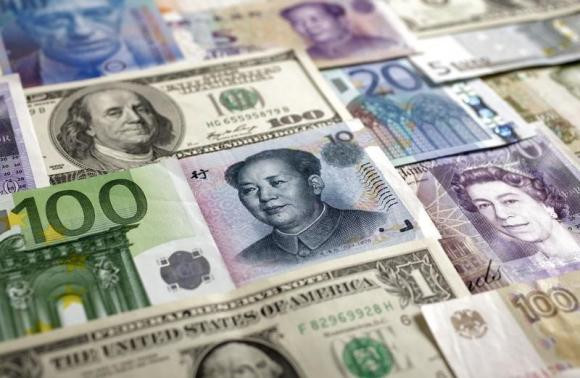Dollar drops as Greece offers concessions; Goldman Sachs predicts EUR/USD parity in 6 months

The dollar showed weakness early Friday (24 April) in Europe as traders keenly watch the outcome of the Eurogroup meeting on Greece, sending the EUR/USD and the GBP/USD to new multi-week highs amid reports that the debt-ridden country has offered concessions on some key reforms demanded by international lenders in exchange for new funding.
Reuters reported that Greek Finance Minister Yanis Varoufakis wrote in his blog that he has agreed to some of the creditors' conditions. "The current disagreements with our partners are not unbridgeable," Varoufakis wrote.
At the same time, the market remains concerned about the necessity for the central banks of the eurozone and Japan to continue or even add to the current quantitative easing programme, helping limit the losses in the greenback.
The euro was down during early Asian hours on Friday but gained momentum as Europe opened. The EUR/USD rose to 1.0887, its highest since 8 April. The GBP/USD jumped to 1.5131, its highest since 19 March and from the previous close of 1.5060.
Goldman Sachs's forecast
Goldman Sachs has predicted the EUR/USD to fall to 1.0 in six months and set the target for the USD/JPY at 125.0 over the same period, noting that markets have mistaken the recent communication from the European Central Bank and the Bank of Japan with respect to their QE views.
"At the end of the ECB press conference on 15 April, when President Mario Draghi made favourable comments on the inflation and growth picture, the market heard it exit, but in our view this is a clear case of lost in translation," the investment bank said.
Goldman noted that Draghi earlier in the press conference had argued forcefully that focus on early exit was premature and that having this debate now was like "quitting a marathon after 1k".
The bank said its European economists continue to expect "full implementation" of the ECB QE, meaning an unchanged pace of asset purchases through at least September 2016.
Similarly, in BoJ Governor Haruhiko Kuroda's speech on 19 April, markets focused on the part "the underlying trend of inflation has improved markedly," Goldman Sachs said, adding that in the bank's view, the more important message was that low inflation momentum is threatening to pull inflation expectations lower, which will then set the stage for additional monetary easing.
"Our Japan chief economist forecasts additional stimulus for July by way of duration extension of JGB purchases (akin to 'Operation Twist' in the US)," the investment bank said.
Weaker than expected US weekly jobless data and Markit services PMI had driven the greenback lower on Thursday. The market is now waiting for the US durable goods orders data for March.
Analysts have forecast the headline figure to have rebounded to 0.6% growth in March from the 1.4% slide recorded for February. Ex-transportation, the sales are expected to have grown 0.3% bouncing off the 0.4% fall in the previous month.
© Copyright IBTimes 2025. All rights reserved.


















